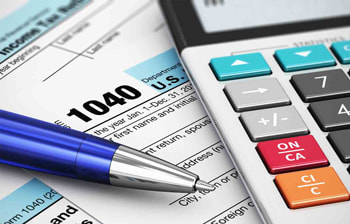April showers and taxes got you down? And which came first, the proverb or the income tax?

Commonly recited as “April showers bring May flowers,” the English Dialect Society in 1886 called this “one of our oldest and commonest saws”:
March winds and April showers
bringeth vo’th May flowers.
[Elworthy, Frederick Thomas, West Somerset Word-Book (London: Trubner & Co., English Dialect Society, 1886), 461.]
The proverb seems to date to the early 1600s, where some of the first references originate:
A kindly good Janiuerre
Freezth pot by the feere;
February fill the dike,
With what thou dost like;
March dust to be sold,
Worth ransom of gold;
Sweet April showers
Do spring May flowers;
Cold May and windy,
Barne filleth up finely;
Calme weather in June
Corne acts in tune;
No tempest, good July
Lest corn look ruely;
Drie August and warm
Doth haruest no harme;
September blow soft
Till fruit be in loft;
October good blast
To blow the hog mast;
November take flaile
Let skep (? peck) no more faile;
O dirty December
For Christmas remember.
* * *
April showers
Make May flowers
* * *
The bee doth love the sweetest flower,
So doth the blossom the April shower
[Northall, G. F., English Folk-Rhymes (London: Keegan Paul, Trench, Trubner & Co., 1892), pp. 430-31 (taken from works from 1610 and 1639)]
And now, what about income taxes?

We all know that Caesar was inclined to tax his subjects. His taxes included assessments on property as well as monetary wealth. The Egyptian Pharaohs taxed cooking oil and even sent scribes into the public to ensure people were using ample cooking oil then to tax it. In 10 AD the Chinese emperor implemented an income tax on skilled workers of 10%. Henry II implemented a tax in 1188 that was one-tenth of his subjects’ personal income. And who can forget Lady Godiva’s naked ride in 11th century Coventry in exchange for her husband’s promise to reduce taxes (okay, so we weren’t actually there and she didn’t actually ride).
Though Caesar’s taxes were a mix of property and income, he is generally attributed as having the first income tax. In modern times, however, the tax followed monetary economies. In 1800 England an income tax was launched to fund war, but it was repealed in 1816.
In the United States, following earlier attempts to launch sales taxes, the first income tax was passed but not implemented in 1861, at a rate of 3%. Two additional attempts followed in 1862 and 1864, the first at 3 and 5%, and then increasing to 10% but repealed after the Civil War in 1872.
In 1913, the 16th Amendment authorized Congress to tax as needed, but because of a strict income floor, the income tax only affected 1% of the population. With WWI taxes increased, but were then reduced. WWII and the New Deal launched never before seen rates as high as 76 and then 94%. After the war, the top rate remained at 80%.
Finally, in 1981, President Reagan lowered individual rates to 25%. Between 1993 and 2003 rates fluctuated, and with the addition of a new low bracket in 2003 of 10% and a top bracket in 2013 of 39.9%, rates were permanently extended.
[See http://www.taxworld.org/History/TaxHistory.htm; http://www.forbes.com/2010/04/14/tax-history-law-personal-finance-tax-law-changes.html.]
Caesar may thus have launched the income tax, but the U.S. perfected it. However dreaded tax season is for most of us, though, we can be grateful that our tax rates aren’t in the 80 and 90% ranges that people faced during the New Deal. For them, it must have been a very rainy April indeed.
A reminder that A Votre Service! Hamptons property management can help you weather April showers and tax season. Let us assist with any rain or water issues or leaks on your property, prepare your grounds for May flowers, and organize your home office files and documents for next year’s tax season.
A Votre Service! wishes a Happy Passover to all of our clients and friends who observe the occasion, and we remind you that we would be pleased to help with any of your entertaining needs.






